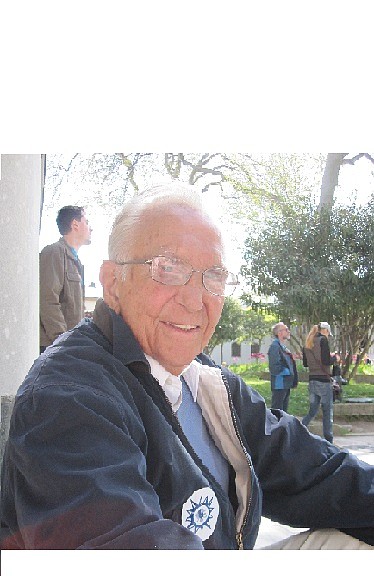Local Interview, Leif Gregerson
August 7, 2014 at 11:00 a.m.
Reed Strong, Northwest Prime Time’s summer intern, is a senior in Western Washington University’s journalism program. He speaks to Northwest area seniors and baby boomers for the series LIFE LESSONS. Each is asked the same four questions: thoughts on growing older; advice for the younger generation; what are they most nostalgic about; and how the world has changed for the better.
Leif Gregerson was born in 1925 in Seattle, and is currently living with his wife in Ballard. Gregerson is 88 years old, and was a pharmacist and a dentist before retiring at the age of 82.
While spending a portion of his life in Alaska during a commercial fishing trip, he ended up back in Seattle after a particularly interesting occurrence.
What have you found are the best aspects of growing older?
“Being able to take all of the world problems, and problems of the individual, as a degree of inevitability: taking it as it comes. I was in the United States Army Air Corp, and then I became a radio operator for the B-17’s and B-24’s. I’ve seen a lot of changes, both from the air force and otherwise. I enjoy seeing all the changes and rolling with the punches. I’ve faced death a few times, and I just find myself being able to take the hard times and turn them into good times.”
What’s the best advice you could give to a younger person?
“The best advice is to be honest, and don’t drink or smoke.”
What thing from your childhood are you nostalgic about?
“Well, I miss the comradery I had with my dad when we were fishing up in Alaska. We fished commercially, and did a lot of things together. We were together 24/7! One time when we were fishing, it was around the time the Japanese bombed Dutch Harbor. I was about 17. The following year, when we left with our fishing boats to cross the gulf, we had to go in convoys. We were afraid of Japanese submarines attacking us. I was shipped on a boat called the Leviathan, a large steamship. About half way across the gulf, and the engine blew up! We were the last boat in the convoy, so we tried to contact the other boats. We shot a flare up in the air, hoping they would see us and turn around to come and help us. They didn’t. But we kept going, for five days and five nights. Finally, we sailed for a while and got the engine fixed by people who repaired our engines. We got to our destination: turns out there were only three of us left, and then we went back to Seattle. We found out that the first boat in the convoy had been missing, and the very same day that we broke down was the same day the Japanese bombed Dutch Harbor. We never heard from that boat again, and the supposition was that the fighter bombers saw the boat going across the gulf, and took it out. That was an unusual event, probably the most exciting thing that’s ever happened to me.”
What changes in the world do you think are for the better?
“Well, there’s just as much fighting, animosity and hatred as there’s ever been. The killing is on a grander scale, and the stress between groups of people is even worse than it was when I was a kid. World War I, World War II, people always had problems. There’s just as much trouble now, maybe even more, with all these lethal weapons that are making it worse. Maybe there’s a little more feeling of being nice to others. The feeling is there, but no one’s doing anything about it. But overall, I see nothing different.”
Read more LIFE LESSONS:





